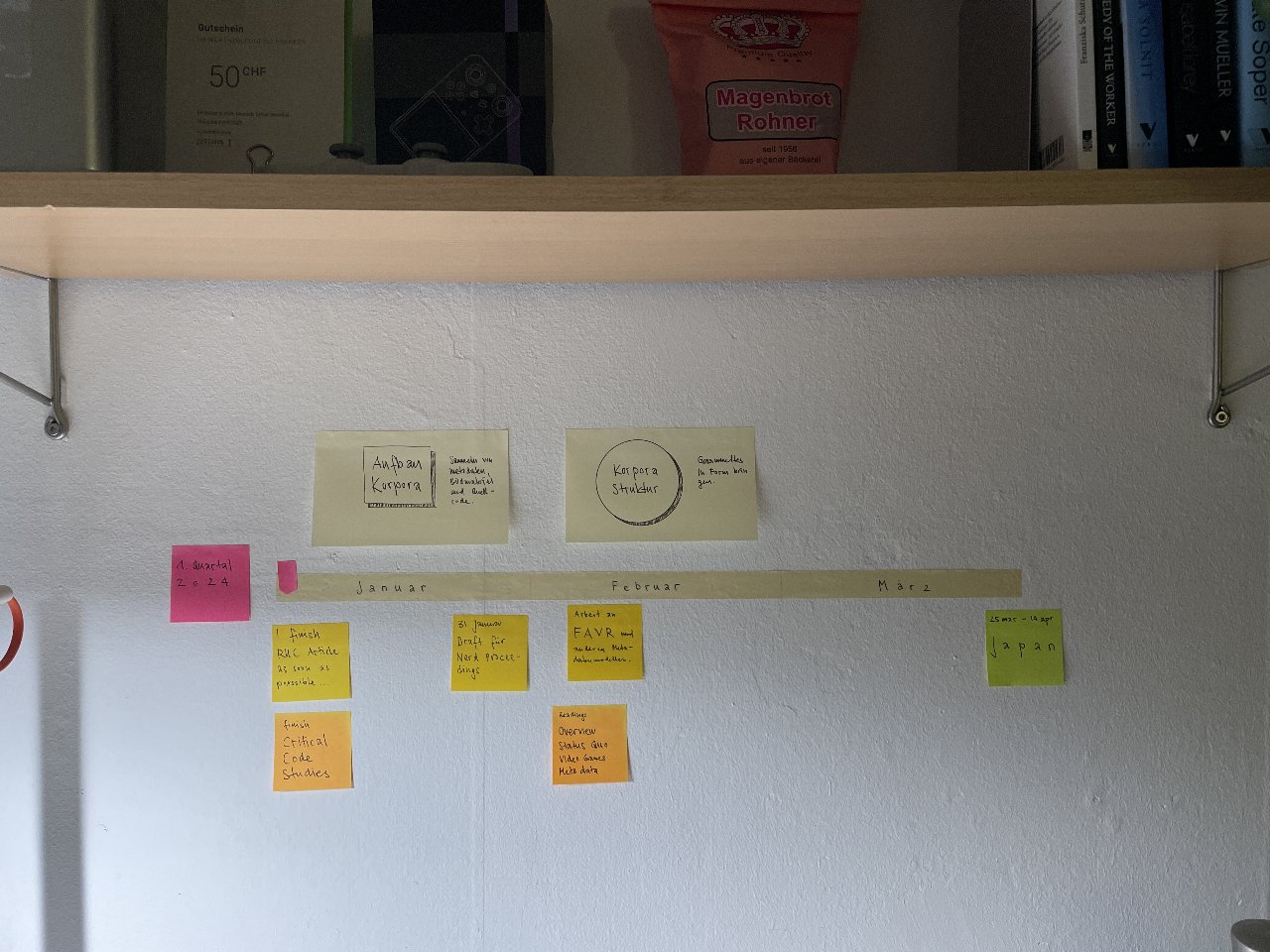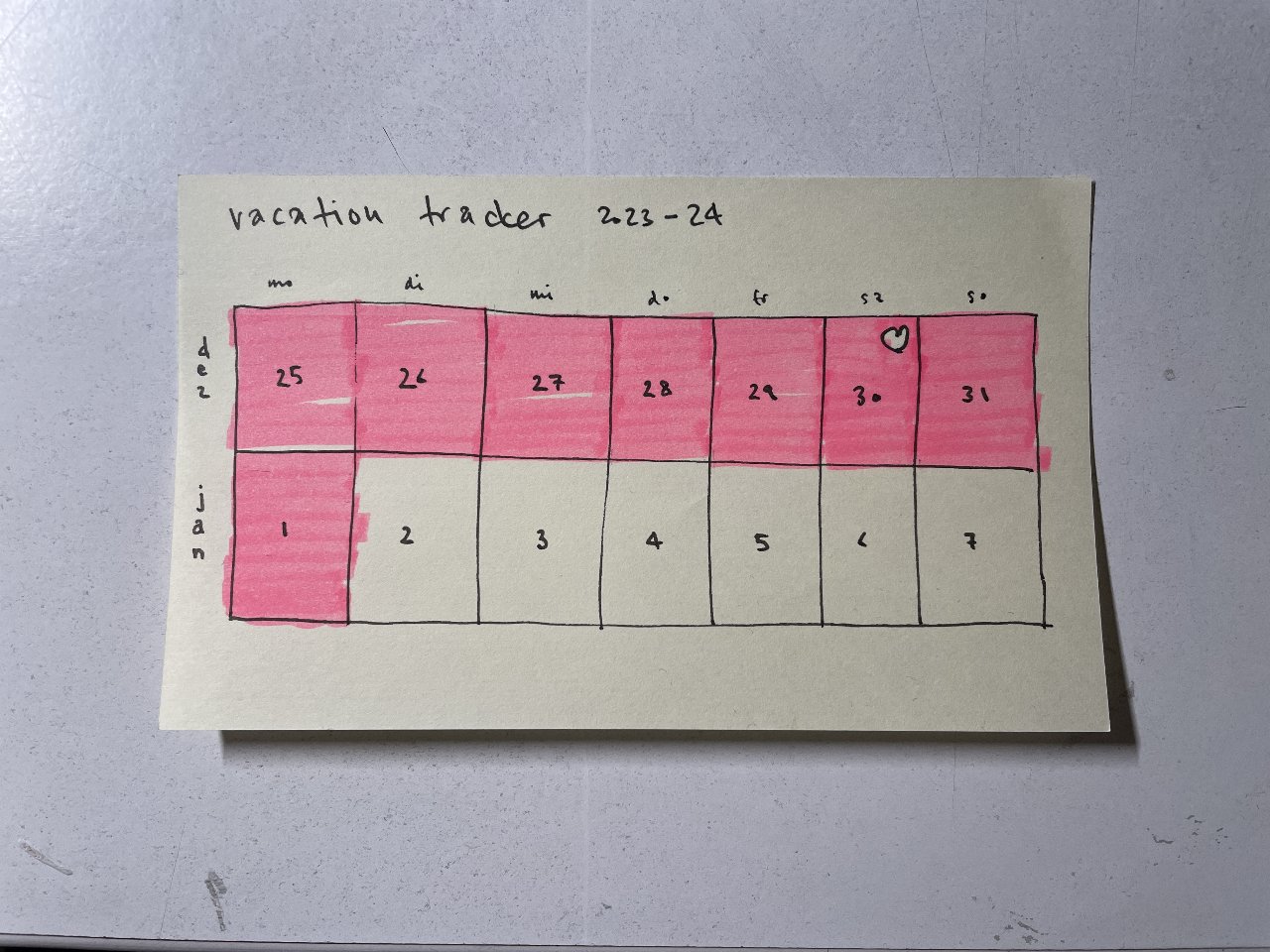Some notes on organization and journaling
During my winter vacation, I listened to the two last episodes of the Powerful Possibilities: ADHD from New Diagnosis & Beyond podcast. They were about how people with ADHD deal with time, and it was insightful. Something, something about the volume of gray matter, dopamine, the now and the not now and the time horizon. I guess I’d need to read into some of the sources to fully trust Katherine on the science that backs the episodes. The coaching part, on the other hand, was fantastic and made me rethink a substantial part of my day-to-day organization.
I recently changed back to CalDAV since doing project- and task management in Obsidian is just too messy for me. Might work for some, but for me, a lot of the things fall into nooks and crannies, and it’s difficult to get a proper overview. I tried to put too much into Obsidian: Daily overview of my events and tasks, some daily reflection, a log of what I’ve done, notes and new tasks and some journaling. Having events and tasks in CalDAV is sustainable and enables me to approach it through different apps while still making sure that the data is safe in Switzerland. Listening to the podcast episodes made me aware that I’m stressing myself a lot. So I removed everything but the journaling part and a random question per day. Obsidian journaling only now.
Some notes I made from the episodes. When thinking about things to organize yourself, you should ask yourself some questions.
- Where are my challenges showing up, and how do they affect me? What do I want to change about that? Am I ready to let go of the stress and pain?
- What are my preferred information processing modalities?
- Who do I want to be in the future? How do I want to live? What will it feel like?
She continues to propose some things:
- Get an analog clock, make time material/physical and not just intellectual
- Shorten the time horizon
- Create consequences, like adding positive outcomes and rewards to commitments
- Visualize time when planning
- Connect with your future self and thank past me
The solution to dealing with time is not time blocking. Emotional regulation is one significant aspect when dealing with ADHD. People with ADHD are much more likely to avoid problems. I need to figure out how a task is affecting me emotionally. Make the things that could fail ridiculously small. We run on interests, not priorities. How can I make boring or tough but important tasks interesting? Once more, exercise is an essential aspect that helps regulate dopamine levels. It doesn’t have to be big, just go for a walk at least.
Takeaways:
- Check emotional regulation often
- Interests > priorities
- make time phenomenological instead of just intellectualize it (kinetic and visual)
- Journaling as a habit with a more or less fixed rhythm
- Keep task tracking as easy and stress-free as possible
- Exercise, exercise, exercise
- Connect to future me and thank past me <3
In practice:
- Events and tasks in CalDAV
- Daily journaling towards emotional reflection; Write a blog post once a month
- Weekly PhD journaling about what I did and reflection
- Post-Its and Obsidian Canvas for time visualization
- Get a wristwatch
- Regularly schedule do-nothing time, where I lay on the floor and watch the ceiling


Besides
- Louie, one of the parrots I had as a pet, died in December. That fucked me up, and I haven’t cried like that in a while. Super tragic story, and the original sin was to get him as a pet in the first place. I feel very guilty about that.
- Watched the utterly beautiful film Fremont in the cinema.
- Reading the pretty bad Last Rituals. It might be a problem with the German translation. Then again, it’s good to read something easy going.
- Removed a lot of clutter and trinkets from my personal space. It’s nice to have a cleared room.